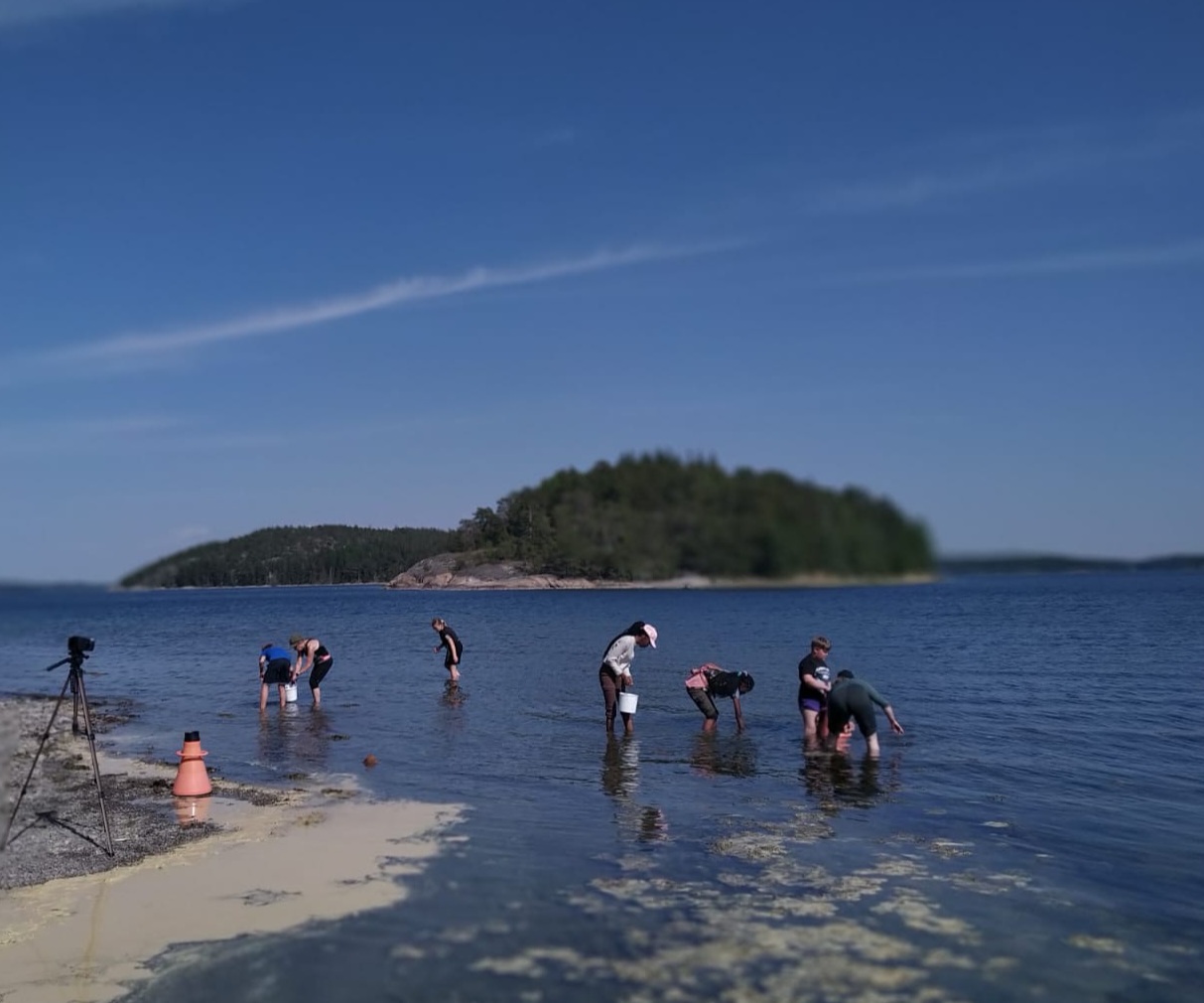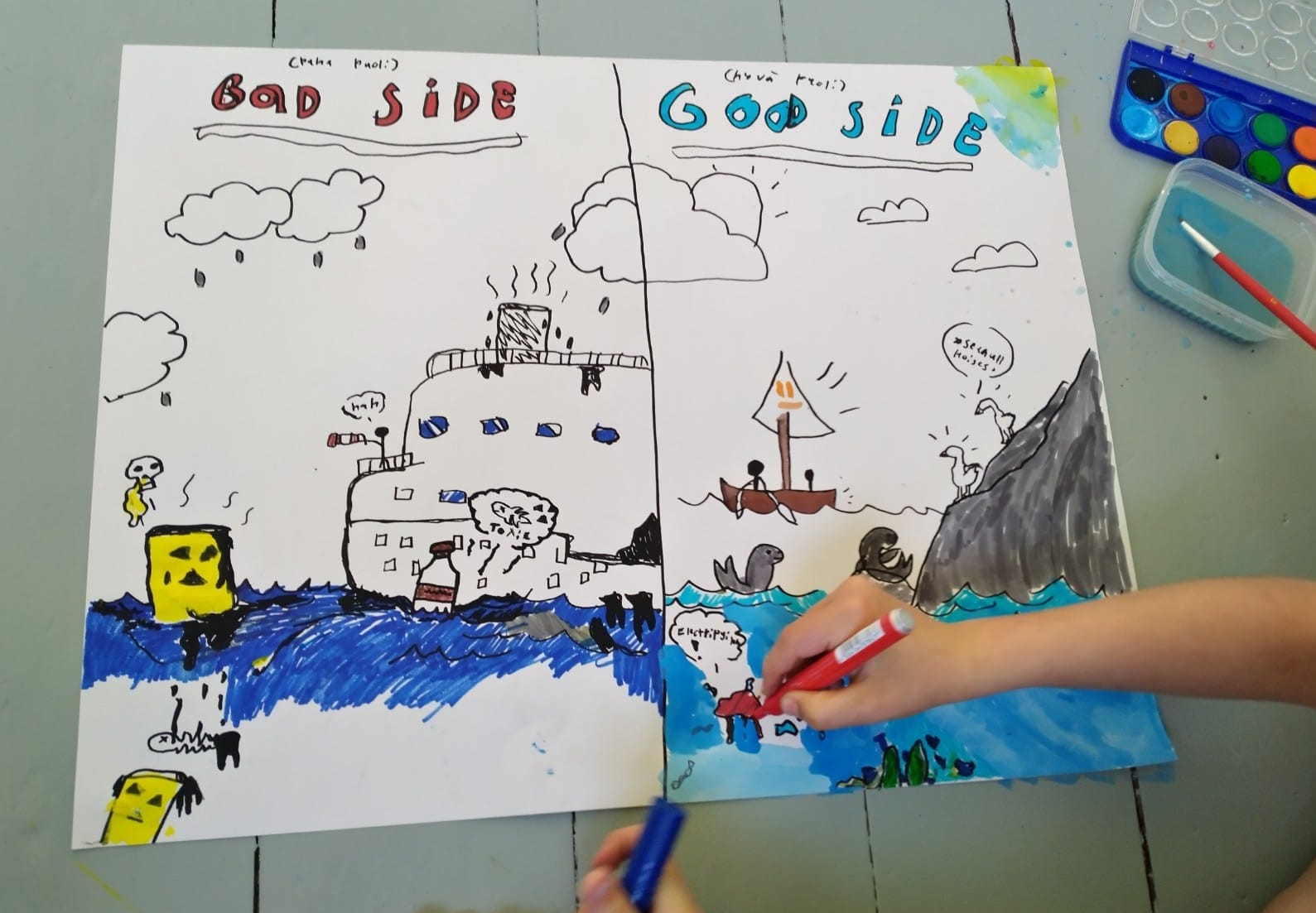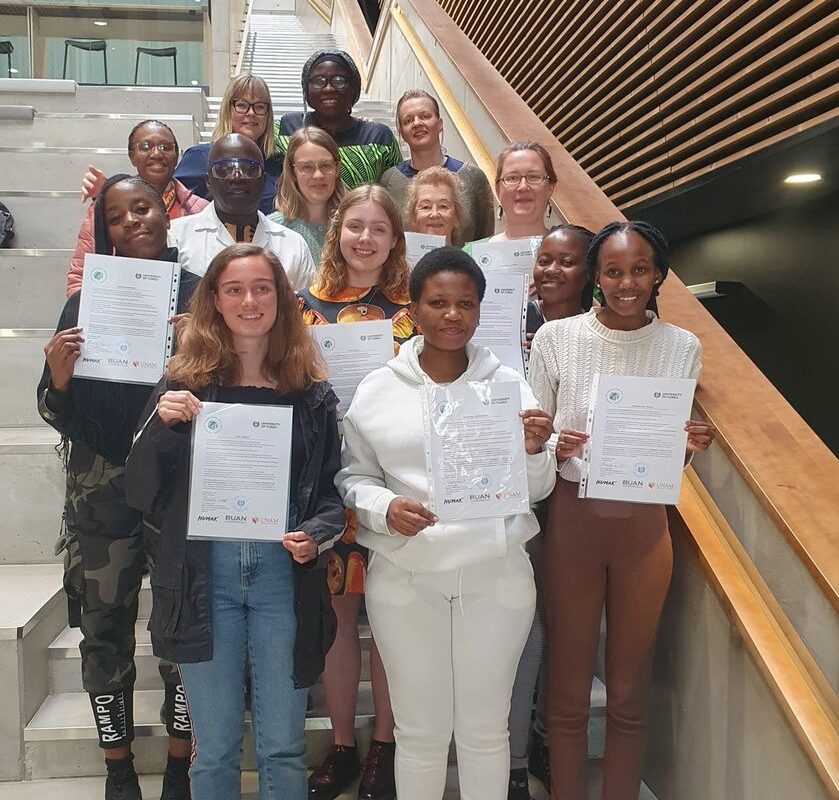International Environmental Education on the Island of Seili
In May 2023, students from Botswana University of Agriculture and Natural Resources (BUAN), University of Namibia (UNAM), University of Turku (UTU), and Humak University of Applied Sciences organised together environmental education activities to a group of primary school children on the island of Seili, in Turku archipelago. It was an unforgettable and transformative learning experience to everyone involved.

Sustainable Seas Project Course
Transdisciplinary and international group of eight students, two from each university, had planned the environmental education activities as part of the Sustainable Seas study module in February – May 2023 organised by Dr Annika Saarto and her colleagues at the University of Turku. It was the first project course offered under our international PEBES project that focuses on pedagogics of biodiversity and environmental sustainability.
Before the mobility week on the island of Seili, students and staff of the PEBES partner institutions participated in four online sessions, gaining knowledge on marine ecosystems and the particularities of the Baltic Sea, the impacts of food production and agriculture on the Baltic Sea, how to promote public awareness of sustainability, tourism and sustainability, as well as natural resources management of the Finnish archipelago and science education activities at the Biodiversity Unit of the University of Turku.
On Seili island, where the University of Turku has carried out marine research since 1964, the motivated international student team, supported by the staff, offered creative, experiential learning activities that included observing sea water properties, demonstrating oil spill damage prevention, and creating posters to raise environmental awareness. The children from Merituuli Primary School in Inkoo were enthusiastic participants with important messages in their posters.

Botswana Calling Next
Dr Arinola Adefila from Staffordshire Centre for Learning and Pedagogic Practice (SCoLPP) in the UK is undertaking a pedagogic evaluation research (PER) of the PEBES project. According to her, the PER enhances the possibility of identifying innovative pedagogies and supportive learning environments. During the mobility week, Dr Adefila used Cultural Mapping as a tool to examine how the collaborative online international learning and project based elements have supported learning during the PEBES project. As Dr Adefila summarized it: “Science and Arts need to come together to save our planet.” We need transgenerational, interdisciplinary conversations and international co-operation to tackle the climate crisis and the loss of biodiversity.
The next project course under PEBES partnership will be offered by BUAN during the summer 2023. It will include a mobility week in Botswana in the end of August. According to BUAN’s Associate Professor Joyce Lepetu, the international students will participate in a capacity building programme in collaboration with the Chobe Enclave Conservation Trust. Dr Lepetu is herself an active and experienced actor of sustainabl development: she is currently creating a national land restoration management strategy in Botswana in collaboration with FAO, the Food and Agriculture Organization of the United Nations.
Change Agents for Sustainable Development
Sustainable development is an important theme also for Humak that has, together with the other universities of applied sciences in Finland, a common goal to be sustainable, responsible and carbon neutral by 2030 (Ylönen 2020). In 2022, Humak published a blog series to highlight questions related to sustainable development work. In Humak’s new curricula from the academic year 2023-2024 onwards, there will be two new study modules on sustainability: Ecosocial Culture and Accessibility (5 ECTS credits) and Towards a Sustainable World (5 ECTS credits).
Humak will organise an international PEBES project course and mobility week in spring 2024. The PEBES project offers students a great opportunity for experiential and intercultural learning that helps understand the interconnectedness of our global challenges. In the education for sustainable development, experiential learning methods and projects are relevant as they develop critical questioning, self-reflection, collaboration, and engaging with the real world and communities. Moreover, experiential learning can foster a sense of agency and hope. It is important to realise that even a small change can actually have a large outcome.
As we are facing the climate crisis and the loss of biodiversity, it is important to cultivate a sense of hope. As the famous Brazilian educationist, Paolo Freire, reminds us: “there is no change without dreams, as there is no dream without hope” (Freire 1992, 81). We only have one home, the planet earth, that we should all protect together.

PEBES – Pedagogics of Biodiversity and Environmental Sustainability
PEBES project (2022-2024) was created by merging the strengths and needs of four universities in three countries: Finland, Botswana, and Namibia. Our aim is that future professional teachers, educators and environmental experts gain transdisciplinary knowledge and understanding of biodiversity and environmental sustainability. We hope that the participants of the project will become sustainability educators and change agents in society. The PEBES project is implemented through partnership of four universities: The University of Turku, Humak University of Applied Sciences, Botswana University of Agriculture and Natural Resources, and University of Namibia. The collaboration is funded by the Finnish National Agency of Education, under the Team Finland Knowledge (TFK) programme. For more information on PEBES, please see the website of the project.
References
Freire, Paulo 1992. Pedagogy of Hope: Reliving Pedagogy of the Oppressed. Translated by Robert R. Barr 2014. London & New York: Bloomsbury Publishing.
Humak 2022. Sustainable Wednesday Blog Series Between 6.4.–18.5. Highlights Sustainable Development Work at Humak and Other Universities. Read 2.6.2024. https://www.humak.fi/en/news/sustainable-wednesday-blog-series/
University of Turku. Archipelago Research Institute. Read 1.6.2024. https://sites.utu.fi/seili/en/title/
Ylönen, Nina 2020. Universities of applied sciences: Sustainable development skills for everyone. Arene. Read 2.6.2024. https://arene.fi/ajankohtaista/universities-of-applied-sciences-sustainable-development-skills-for-everyone/
Text and photos: Laura Keihäs, Lecturer in the degree programme for Community Educators and Humak’s PEBES Project Manager, Humak University of Applied Sciences

